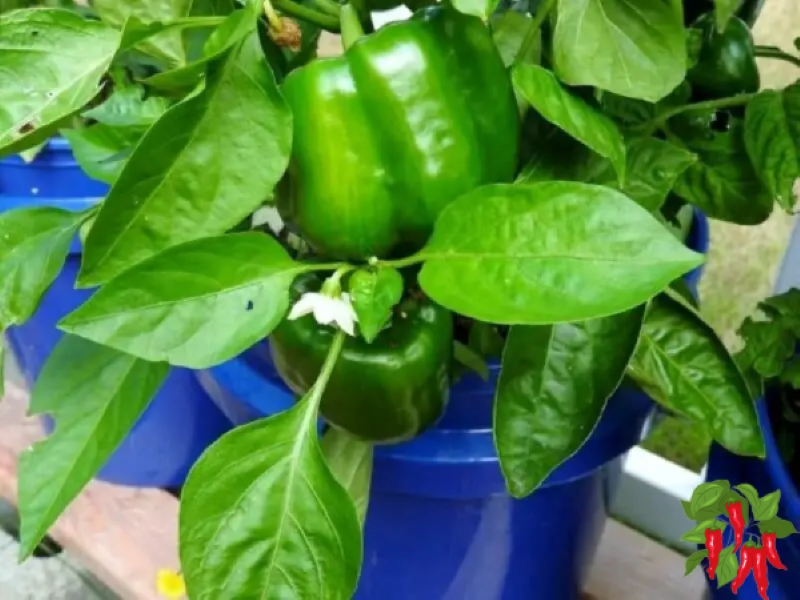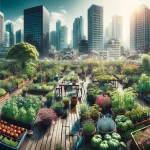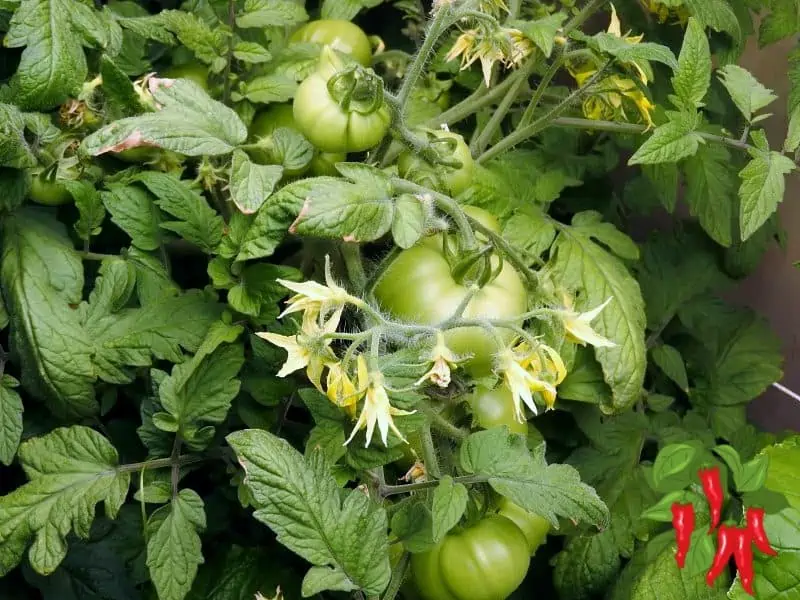This post may contain affiliate links. If you buy something from one of our links we may earn a commission. Thanks
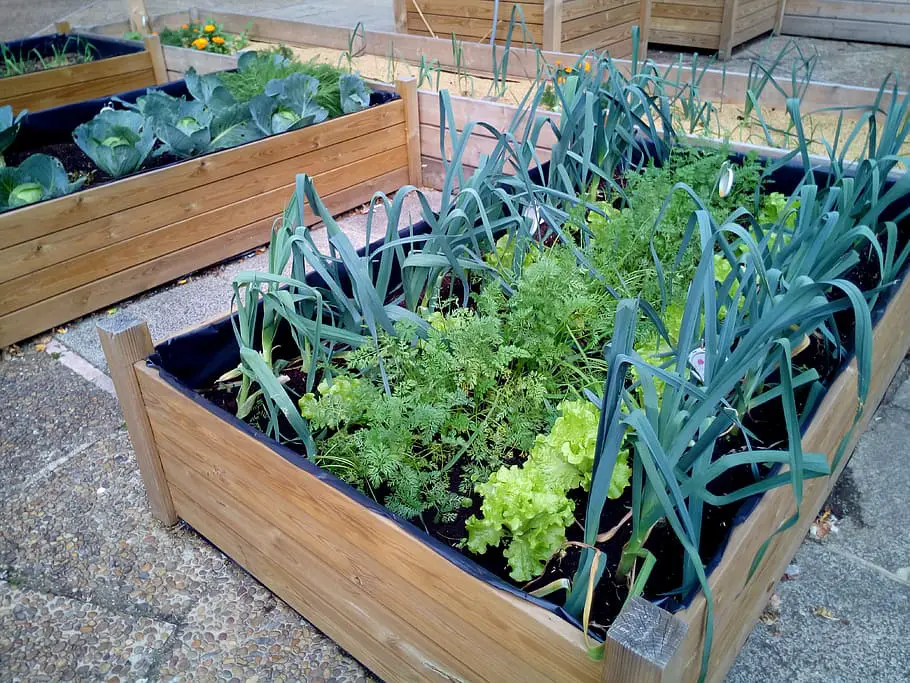
Why is urban gardening important in our daily lives? Learn its benefits, impact on the environment, and how it shapes our communities. Join us!
Ever wondered why is urban gardening important? Well, you’re not alone.
As our cities grow, so does the need for green spaces that not only beautify our surroundings but also contribute to our well-being and the health of our planet.
Urban gardening is more than just a trend. It’s a powerful movement that’s transforming concrete jungles into thriving, sustainable ecosystems.
So, let’s dig into the world of urban gardening and unearth its importance in our modern lives.
Why is Urban Gardening Important?
Have you ever asked yourself, ‘why is urban gardening important?’ It’s a question that’s sprouting up more and more in our city-centric world. In this blog post, we’re going to explore the roots of urban gardening, its environmental, economic, and social benefits, and its crucial role in combating climate change.
We’ll also delve into how urban agriculture enriches our communities and answer some frequently asked questions.
So, whether you’re a seasoned gardener or just curious about those rooftop gardens you’ve seen around town, stick around as we dig deeper into the importance of urban gardening.
Brief overview of urban gardening
Urban gardening, you’ve probably heard the term, but what does it really mean?
Well, in simple terms, it’s the practice of cultivating, processing, and distributing food in or around a village, town, or city.
It’s all about making the most of our urban spaces, from tiny balconies and rooftops to vacant lots and community parks.
It’s about growing your own food, creating a green space, and connecting with nature, even in the heart of the city.
It’s a way to transform our concrete landscapes into lush, green, productive gardens.
Importance of the topic
Now, you might be thinking, That sounds nice, but why is urban gardening important? Great question!
Urban gardening is not just about beautifying our cities or growing our own tomatoes (although those are great perks!).
It’s about much more. It’s about environmental stewardship, promoting biodiversity, and reducing our carbon footprint.
It’s about food security, supporting local economies, and building stronger communities.
It’s about education, health, and well-being. In essence, urban gardening is a powerful tool for sustainable development and a healthier, more resilient future.
So, as we delve deeper into this topic, you’ll see just how significant a little green in the city can be.
The Concept of Urban Gardening
Let’s now turn our attention to the concept of urban gardening.
If you’re picturing rows of corn growing in the middle of a bustling city, well, it’s a bit more diverse than that!
Urban gardening takes on many forms and each one has its own unique charm.
From rooftop gardens that offer a peaceful retreat, to community gardens that bring neighbors together, urban gardening is all about creativity and adaptability.
So, let’s dig a bit deeper and explore what urban gardening really means and the different forms it can take. Ready to get your ‘green’ on?
Definition of urban gardening
So, what exactly is urban gardening? In the simplest terms, urban gardening is the practice of growing plants in an urban environment.
It’s about using whatever space you have – a small balcony, a rooftop, a vacant lot, or a shared community space – to grow your own food or simply to create a green, serene spot in the midst of the city hustle.
It’s about turning urban spaces, often seen as sterile and grey, into vibrant, life-affirming, green areas.
But urban gardening is more than just planting seeds in the ground; it’s a movement towards self-sufficiency, sustainability, and community building.
Different types of urban gardening
Urban gardening can take many forms, and that’s part of its beauty – it’s incredibly adaptable! Let’s take a look at some of the most common types:
Container Gardening: Perfect for those with limited space. Think balconies or small patios. All you need are some pots or containers to start growing your own herbs, vegetables, or flowers.
Community Gardens: These are shared spaces where people come together to garden. It’s a great way to build community, share gardening tips, and, of course, share the fruits (or vegetables) of your labor!
Rooftop Gardens: Got a flat roof with a good amount of sunlight? It could be the perfect place for a garden. Rooftop gardens can provide a peaceful green retreat and can even help to insulate buildings.
Vertical Gardens: When you can’t grow out, grow up! Vertical gardening is all about using vertical space to grow plants. It’s a great option for adding greenery to walls and fences.
Window Farms: No outdoor space? No problem! Window farms are indoor gardens that use natural window light to grow plants.
Remember, there’s no one-size-fits-all in urban gardening. It’s all about using the space you have and choosing the right type of urban gardening that suits your lifestyle and environment.
Environmental Benefits of Urban Gardening
Let’s now delve into the heart of why urban gardening is making such a buzz – its environmental benefits.
You might be surprised to learn that those potted plants on your balcony or the community garden down the street are doing more than just adding a touch of green to the cityscape.
They’re actually playing a significant role in combating some of our most pressing environmental challenges.
From reducing carbon emissions to promoting biodiversity, urban gardens are little green warriors in our fight for a sustainable future.
So, let’s explore how your urban garden is not just a hobby, but a step towards saving our planet.
Reduction in transportation costs
One of the great things about urban gardening is that it brings the farm to the city, so to speak.
When we grow food in our cities, we reduce the need for long-distance transportation of produce.
This means fewer trucks on the road, less fuel consumption, and ultimately, lower carbon emissions.
It’s a simple equation – the shorter the distance from farm to fork, the smaller the environmental footprint.
Reduction in runoff associated with heavy rainfall
Urban areas, with their concrete surfaces and lack of green spaces, are notorious for creating runoff during heavy rains.
This runoff can lead to flooding and water pollution. Urban gardens, however, act like sponges, absorbing rainwater and reducing runoff.
Plus, they help to filter the rainwater, removing pollutants before they enter our waterways.
Improvement in air quality
Plants are nature’s air purifiers. They absorb carbon dioxide and release oxygen, making the air cleaner and healthier for us to breathe.
But that’s not all. They also absorb harmful pollutants like nitrogen dioxide and particulate matter, significantly improving air quality.
So, those plants in your urban garden are doing double duty – beautifying your space and cleaning the air!
Increasing biodiversity
Urban gardens can be a haven for a variety of insects, birds, and other wildlife, increasing biodiversity in our cities.
They provide habitats and food sources for these creatures, which are often scarce in urban environments.
From bees that pollinate our plants to birds that control pests, the biodiversity in our urban gardens plays a crucial role in maintaining healthy ecosystems.
Improving soil condition
Healthy soil is the foundation of any garden, and urban gardens are no exception.
Gardening practices like composting and crop rotation can significantly improve soil health by adding organic matter and nutrients.
This not only benefits the plants in the garden but also helps to sequester carbon, playing a small but significant role in combating climate change.
Plus, healthy soil helps to filter and clean rainwater, further contributing to water quality.
Economic Benefits of Urban Gardening
Now, let’s talk money. You might be thinking, ‘How does my little garden impact the economy?’
Well, the economic benefits of urban gardening might surprise you. It’s not just about saving on your grocery bill (although that’s a nice perk!).
Urban gardening plays a significant role in stimulating local economies, supporting local food producers, and even creating jobs.
Plus, it has the potential to reduce public spending on health by promoting healthier lifestyles.
So, let’s dive into the economic greenery that urban gardening brings to our concrete jungles.
Stimulation of local economies
Urban gardening can have a significant positive impact on local economies. How?
Well, for starters, it can create jobs. From garden coordinators and educators to those involved in the sale and distribution of locally grown produce, urban gardening opens up a range of employment opportunities.
Additionally, money spent on local produce stays within the community, helping to stimulate local economies.
Plus, urban gardens can increase property values, as they contribute to the aesthetic appeal and overall quality of life in the neighborhood.
Support for local food producers
By growing food locally, urban gardening supports local food producers.
It provides an avenue for urban dwellers to purchase fresh, locally grown produce, which in turn supports the local farming community.
This not only helps to sustain local agriculture but also ensures the availability of fresh, nutritious food within the community. It’s a win-win situation!
Reduction in food transportation costs
When food is grown locally, it doesn’t have to travel long distances to reach consumers.
This means a significant reduction in food transportation costs. It’s not just about the money saved on fuel.
Less food transportation also means less food waste, as produce is less likely to spoil in transit.
Plus, it reduces the need for packaging, which is often non-recyclable and ends up in landfills.
So, by reducing food transportation costs, urban gardening also contributes to waste reduction and environmental sustainability.
Social Benefits of Urban Gardening
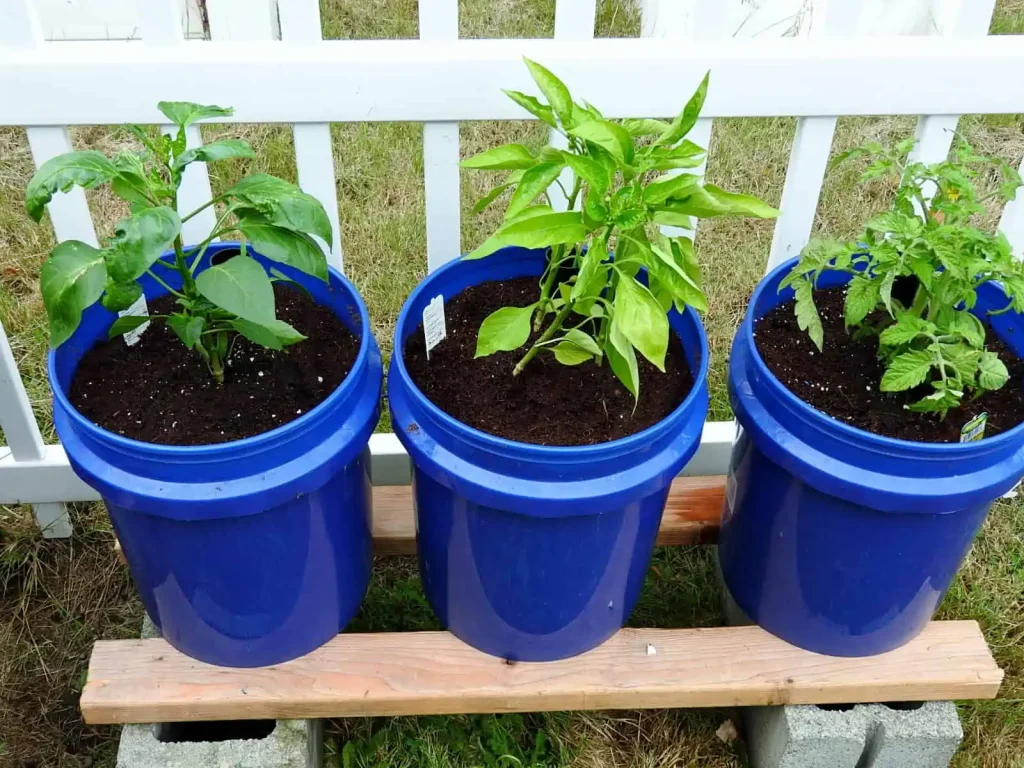
Urban gardening isn’t just about plants and produce; it’s also about people.
It’s about the connections we make when we come together to plant, nurture, and harvest.
It’s about the joy of sharing the fruits of our labor with our neighbors.
It’s about the sense of accomplishment we feel when we see the seeds we planted grow into thriving plants.
Yes, urban gardening has some incredible social benefits.
From community building to educational opportunities, let’s explore how urban gardening is sowing the seeds of social change.
Community building
One of the most beautiful aspects of urban gardening is its ability to bring people together.
Community gardens, in particular, are a wonderful way to foster a sense of community.
They provide a space where neighbors can work together, learn from each other, and form meaningful relationships.
They can also be a platform for community events, like harvest festivals or gardening workshops.
In this way, urban gardening helps to build stronger, more connected communities.
Educational opportunities about nutrition and sustainable agriculture
Urban gardens are outdoor classrooms where people of all ages can learn about nutrition and sustainable agriculture.
They provide hands-on learning experiences that can help people understand where their food comes from, how it’s grown, and why that matters.
They can teach us about the importance of eating fresh, nutritious food and how sustainable farming practices can help protect our planet.
Plus, they can inspire a new generation of green thumbs!
Increased access to healthy, affordable, fresh produce
In many urban areas, access to fresh, affordable produce can be a challenge.
Urban gardens can help to address this issue by providing a source of fresh, nutritious food right in the heart of the city.
They can make it easier for urban dwellers to incorporate more fruits and vegetables into their diet, which can have significant health benefits.
Plus, growing your own food can be a cost-effective way to eat healthily. So, urban gardening is not just good for our planet; it’s good for our health and our wallets too!
Urban Gardening and Climate Change
As we face the growing challenges of climate change, every action counts. And yes, that includes urban gardening!
You might be wondering, ‘How can my small city garden make a difference?’ Well, when it comes to fighting climate change, urban gardens are more powerful than you might think.
They’re not just green spaces in the city; they’re also green solutions to some of our most pressing environmental issues.
So, let’s explore how urban gardening is helping to combat climate change and create more sustainable cities.
How urban gardening helps fight climate change
Urban gardening plays a significant role in our fight against climate change. Here’s how:
Carbon Sequestration: Plants absorb carbon dioxide, a major greenhouse gas, from the atmosphere.
By increasing the number of plants in urban areas, we can help to reduce the amount of carbon dioxide in the atmosphere.
Reducing Heat Islands: Urban areas, with their concrete and asphalt, can become ‘heat islands’ that are significantly warmer than surrounding areas.
This can exacerbate the effects of heat waves and increase energy consumption due to air conditioning. Urban gardens, with their greenery, can help to cool these areas and reduce the heat island effect.
Reducing Energy Consumption: Urban gardens, especially those on rooftops, can provide insulation for buildings, reducing the need for heating in winter and cooling in summer. This can significantly reduce energy consumption and associated carbon emissions.
Urban gardening’s role in creating sustainable cities
Urban gardening is a key player in the movement towards more sustainable cities. Here’s why:
Promoting Local Food Systems: By growing food locally, urban gardening reduces the need for long-distance transportation and associated carbon emissions. It promotes a more sustainable food system that is resilient to climate change.
Improving Air and Water Quality: As we’ve already discussed, urban gardens can improve air quality by absorbing pollutants. They can also improve water quality by reducing runoff and filtering rainwater.
Creating Green Spaces: Urban gardens create green spaces that not only improve the quality of life for city dwellers but also provide habitats for a variety of wildlife, promoting biodiversity.
Encouraging Sustainable Practices: Urban gardening encourages sustainable practices like composting and water conservation. It’s a way for city dwellers to live more sustainably and reduce their environmental footprint.
So, while your urban garden might seem small, it’s part of a larger movement towards more sustainable, resilient cities. And that’s something to be proud of!
The Role of Urban Agriculture in Our Communities
Urban gardening is not just about the individual gardener or even the individual garden. It’s about the broader community.
It’s about how these small patches of green can transform our urban landscapes, improve our quality of life, and strengthen our communities.
From providing access to fresh, local food to creating much-needed green spaces, urban agriculture plays a vital role in our communities.
So, let’s take a moment to appreciate the bigger picture and explore the role of urban agriculture in our communities.
Access to healthy, local food
One of the most direct benefits of urban agriculture is that it provides access to fresh, healthy, local food.
In many urban areas, especially low-income neighborhoods, access to fresh produce can be a challenge.
These areas, often referred to as ‘food deserts’, lack grocery stores that sell fresh fruits and vegetables.
Urban gardens can help to fill this gap by providing a source of fresh produce right in the heart of the city.
Plus, because the food is grown locally, it’s often fresher and more nutritious than produce that has been transported long distances.
Creation of green spaces for mental and physical health benefits
Urban gardens do more than just provide food; they also create green spaces that can have significant mental and physical health benefits.
Studies have shown that spending time in green spaces can reduce stress, improve mood, and even boost cognitive function.
They provide a place for physical activity, which can improve overall health and well-being.
Plus, they can provide a sense of peace and tranquility in the midst of the city hustle. In this way, urban gardens contribute to healthier, happier communities.
FAQs
As we’ve explored the world of urban gardening, you might have a few questions brewing. And you’re not alone!
There are some common questions that often pop up when discussing urban gardening.
So, we’ve gathered some of the most frequently asked questions about urban gardening and we’re going to answer them right here.
From the benefits of community gardening to the role of urban farming in fighting climate change, we’ve got you covered.
So, let’s dive into the FAQs and quench your curiosity!
Q: What are the benefits of community gardening?
A: Community gardening offers a host of benefits. It provides a space for people to come together and build stronger, more connected communities.
It offers a way for people to learn about gardening, share tips and advice, and work together towards a common goal.
It also provides access to fresh, locally grown produce, which can be especially important in urban areas where access to fresh produce can be limited.
Plus, community gardens can beautify neighborhoods and increase local biodiversity.
Q: What is a fact about urban gardening?
A: Here’s an interesting fact: Urban gardening can significantly improve air quality in cities.
Plants absorb carbon dioxide and release oxygen, making the air cleaner and healthier to breathe.
They also absorb harmful pollutants, further improving air quality. So, those plants in your urban garden are doing more than just looking pretty – they’re cleaning the air!
Q: How would urban farming help fight climate change?
A: Urban farming helps fight climate change in several ways.
First, by growing food locally, it reduces the need for long-distance transportation and the associated carbon emissions.
Second, plants absorb carbon dioxide, a major greenhouse gas, helping to reduce its levels in the atmosphere.
Third, urban farming practices like composting can help sequester carbon in the soil.
Finally, urban farms can reduce the heat island effect in cities, which can help mitigate the impacts of climate change.
Q: What are some benefits related to urban gardening?
A: Urban gardening offers a range of benefits. It can improve access to fresh, healthy food, promote biodiversity, improve air and water quality, and reduce carbon emissions.
It can also provide mental and physical health benefits, create green spaces in cities, and build stronger communities.
Plus, it can stimulate local economies and support local food producers.
In short, urban gardening can contribute to healthier, more sustainable, and more resilient cities.
Why is Urban Gardening Important? Conclusion
Urban gardening is more than just a hobby or a trend. It’s a powerful tool for creating healthier, more sustainable, and more resilient cities.
From reducing carbon emissions and improving air quality, to stimulating local economies and building stronger communities, the benefits of urban gardening are far-reaching.
So, whether you’re a seasoned gardener or just starting out, remember that every plant you grow is a step towards a greener, healthier future.
So, why is urban gardening important? Because it’s a small action that can make a big difference.
So, let’s keep planting, keep growing, and keep making our cities a little bit greener.
Recap of the importance of urban gardening
As we’ve journeyed through the world of urban gardening, we’ve seen just how impactful it can be.
It’s not just about adding a touch of green to our urban landscapes or growing our own tomatoes (though those are wonderful aspects!).
Urban gardening is about environmental stewardship, reducing carbon emissions, and promoting biodiversity.
It’s about supporting local economies, enhancing food security, and fostering community connections.
It’s about education, health, and well-being. In essence, urban gardening is a powerful tool for sustainable development and a healthier, more resilient future.
Encouragement for more urban gardening initiatives
So, where do we go from here? The answer is simple: more urban gardening!
Whether it’s starting a small herb garden on your balcony, joining a community garden, or advocating for more green spaces in your city, every effort counts.
Remember, urban gardening is adaptable. It’s not about the size of the space, but the love and care you put into it.
So, let’s continue to sow the seeds of change, one garden at a time. Because together, we can make our cities greener, our communities stronger, and our world a better place.





